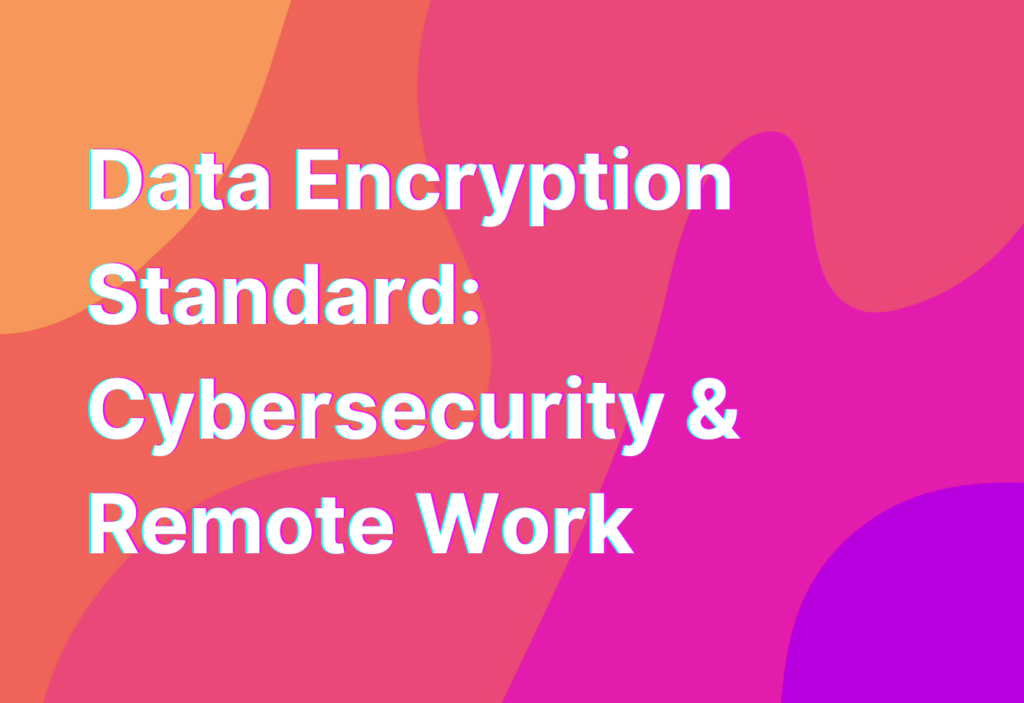Data Encryption Standard: Cybersecurity & Remote Work
Hey there, remote work enthusiasts! It’s Ashley here, your friendly remote work advocate with another informative blog post. Today, we’re diving into the world of data encryption standard and its importance in ensuring cybersecurity for remote work. So grab your favorite cup of coffee and let’s get started!
What is Data Encryption Standard?
Data encryption standard, often referred to as DES, is a widely used encryption algorithm that plays a crucial role in securing sensitive information. It was developed in the 1970s by IBM and later adopted by the U.S. government as a standard for encrypting sensitive data.
DES uses a symmetric key algorithm, which means the same key is used for both encryption and decryption. This key is typically a string of bits that determines how the data is transformed. By encrypting data using DES, it becomes unreadable to anyone who doesn’t have the key to decrypt it.
The Importance of Data Encryption Standard in Remote Work
Now, you might be wondering why data encryption standard is particularly important for remote work. Well, let me tell you, my fellow remote workers, the nature of remote work brings its own set of cybersecurity challenges. When you’re working outside the traditional office environment, you’re often relying on public Wi-Fi networks, which can be vulnerable to hackers.
By implementing data encryption standard, remote workers can ensure that their sensitive data remains secure, even when transmitted over unsecured networks. This is especially crucial when dealing with confidential client information, financial data, or any other sensitive data that could be targeted by cybercriminals.
Benefits of Data Encryption Standard for Remote Work
Now that we understand the importance of data encryption standard, let’s explore some of the benefits it brings to remote work:
- Data Protection: By encrypting data using DES, remote workers can protect their information from unauthorized access. Even if a hacker manages to intercept the data, they won’t be able to decipher it without the encryption key.
- Compliance: Many industries have strict regulations regarding data security, such as HIPAA for healthcare or GDPR for businesses operating in the European Union. Implementing data encryption standard helps remote workers comply with these regulations and avoid hefty fines.
- Client Trust: When you can assure your clients that their data is encrypted and secure, it builds trust and confidence in your remote work practices. This can lead to stronger client relationships and increased business opportunities.
- Peace of Mind: Knowing that your sensitive data is protected by encryption can give you peace of mind as a remote worker. You can focus on your work without constantly worrying about the security of your information.
- Remote Team Collaboration: Data encryption standard also enables secure collaboration among remote team members. Whether you’re sharing files or communicating through messaging platforms, encryption ensures that your team’s data remains confidential.
Implementing Data Encryption Standard for Remote Work
Now that we’ve covered the benefits, you might be wondering how to implement data encryption standard for your remote work setup. Well, my friends, there are a few key steps you can take:
- Use Secure Communication Channels: When communicating with clients or team members, opt for encrypted messaging platforms or virtual private networks (VPNs) to ensure the security of your conversations.
- Encrypt Your Devices: Make sure to encrypt your devices, such as laptops and smartphones, to protect the data stored on them. Most operating systems offer built-in encryption features that you can enable.
- Secure File Sharing: When sharing files with clients or team members, use secure file sharing platforms that offer end-to-end encryption. This ensures that only authorized individuals can access the shared files.
- Train Your Team: Educate your remote team members about the importance of data encryption standard and provide them with guidelines on how to implement it in their work routines. Awareness and training are key to maintaining a secure remote work environment.
- Implement Firewall Policies: Firewall policies are another crucial aspect of remote work cybersecurity. To learn more about essential firewall policies for remote work, check out this link.
Wrapping Up
And there you have it, folks! Data encryption standard is a powerful tool in ensuring the cybersecurity of remote work. By implementing DES, remote workers can protect their sensitive data, comply with industry regulations, and build trust with clients. Remember to use secure communication channels, encrypt your devices, and train your team on the importance of data encryption. Stay safe and secure in your remote work journey!


